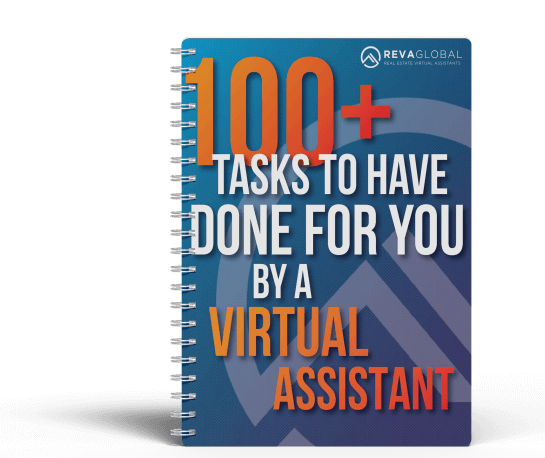How a Virtual Assistant Scales Businesses: Real Case Study Insights

In today’s fast-paced, digitally driven economy, entrepreneurs and small businesses are constantly searching for ways to stay competitive, increase efficiency, and reduce overhead. One solution that has emerged as a game-changer is hiring a Virtual Assistant (VA). These remote professionals are transforming how businesses operate, offering support across a range of essential tasks while allowing business owners to focus on what truly matters: growth. A well-placed Virtual Assistant scales businesses in a way that creates both operational freedom and strategic momentum.
What Is a Virtual Assistant?
A Virtual Assistant is a highly skilled professional who provides administrative, technical, or creative assistance to clients remotely. They can be full-time, part-time, or project-based, depending on a company’s specific needs. VAs are often experts in their niche and can handle responsibilities such as:
- Calendar and email management
- Customer service
- Social media management
- Lead generation
- Market research
- Bookkeeping
- Content creation
- CRM management
For real estate investors, medical practices, e-commerce businesses, and other entrepreneurs, VAs can be an indispensable part of the team without the cost of hiring in-house staff. In each case, the goal is the same: a Virtual Assistant scales businesses by offloading time-consuming tasks and increasing focus on growth.
How a Virtual Assistant Scales Businesses
Virtual Assistants help scale businesses in several key ways:
- Time Reclamation: Business owners reclaim time spent on repetitive, low-leverage tasks.
- Cost Efficiency: VAs typically cost less than in-house employees, saving on salaries, benefits, and overhead.
- Increased Productivity: Delegating tasks allows the core team to focus on strategic initiatives.
- Operational Consistency: VAs help standardize and streamline processes, especially when handling lead generation, data entry, and customer support.
- Flexibility and Scalability: VAs are easily scalable resources that can be added or adjusted as business needs evolve.
When chosen and onboarded correctly, a Virtual Assistant scales businesses by filling the operational gaps that prevent growth.
Real Case Studies: From Overwhelmed to Optimized
Case Study 1: Wholesaling with Consistency
Background Context
A solo real estate wholesaler was working tirelessly to generate and close leads but lacked consistency. His marketing efforts would spike and crash depending on how much time he could spare from other tasks.
Main Challenge
The investor couldn’t maintain daily outbound lead generation. Texting campaigns, CRM follow-ups, and managing conversations with leads all fell behind, resulting in inconsistent closings and missed revenue.
Solution
He hired a single Virtual Assistant from REVA Global trained in real estate lead generation. The VA took over texting campaigns, managed the CRM pipeline, and ensured no lead was left unattended.
Results
The wholesaler began closing deals every single month. With just one VA managing communication and follow-up, the investor experienced a reliable deal pipeline and regained hours each week to focus on negotiations and strategy. This is a textbook example of how a Virtual Assistant scales businesses through focused, reliable support.
Case Study 2: House Flipper Reclaims Growth
Background Context
A house flipper had seen some success but found himself stuck between juggling job site visits and trying to handle lead outreach. The business was losing momentum.
Main Challenge
Every hour spent crafting SMS campaigns and following up with potential sellers was time not spent walking properties or closing deals. Lead nurturing was sporadic at best.
Solution
A dedicated VA was assigned to manage outbound text blasts and track responses. The VA categorized leads by urgency and ensured prompt follow-up sequences, allowing the flipper to concentrate on what he did best—acquiring and rehabbing properties.
Results
Within 60 days, engagement rates climbed, follow-ups became systematic, and the investor closed two additional deals. The VA’s efforts directly impacted acquisition efficiency and revenue. This case demonstrates another way a Virtual Assistant scales businesses—by driving higher ROI on existing marketing efforts.
Streamline your business with a Real Estate Virtual Assistant
By utilizing a Real Estate Virtual Assistants, you can free up your time and make sure that your real estate business is running smoothly.
Case Study 3: Property Management at Scale
Background Context
A small property management company was trying to handle growth without sufficient staff. The owner managed leasing, tenant complaints, and marketing listings alone.
Main Challenge
Tenants experienced delays in communication, listings were inconsistently posted, and maintenance requests went unanswered for too long—leading to turnover and reputation risk.
Solution
The client started with one VA for social media and tenant communication. After success with that role, they expanded to a team of five VAs managing leasing, maintenance tracking, email inboxes, and listing updates.
Results
The company dramatically improved tenant response times, reduced vacancy periods, and experienced smoother day-to-day operations. The VA team enabled the owner to focus on portfolio expansion, once again showing how a Virtual Assistant scales businesses by managing operational load.
Case Study 4: Contractor Gets Admin Relief
Background Context
A contractor in the paint industry was overwhelmed by administrative tasks like job bidding, invoicing, and project tracking—all while trying to oversee teams in the field.
Main Challenge
Spending hours on back-office work was limiting the contractor’s ability to take on new projects or supervise job quality firsthand.
Solution
They hired a VA initially to manage bids and invoicing. Seeing immediate benefits, they quickly scaled up to five VAs who now manage all backend operations, including scheduling, job progress tracking, and vendor communication.
Results
The contractor expanded capacity and now takes on more jobs without increasing stress or losing quality oversight. The admin load is completely managed, creating room for strategic growth. It’s yet another scenario where a Virtual Assistant scales businesses by freeing up owner bandwidth.
Case Study 5: Financial Clarity for Property Operations
Background Context
A property management group was growing quickly, but their collections and bookkeeping processes weren’t keeping pace. Delinquencies were rising, and financial reporting lagged behind.
Main Challenge
Missed rent collections, untracked lease renewals, and slow financial reporting created friction internally and with clients.
Solution
They onboarded six VAs trained in leasing support, collections, and bookkeeping. Each VA handled a designated role and followed KPIs set by the company.
Results
The company saw a drop in delinquency rates and improvements in both lease renewals and bookkeeping accuracy. Financial reports are now timely and actionable. This level of structured support proves once again that a Virtual Assistant scales businesses by tightening financial oversight.
Each of these business owners faced similar pain points: time constraints, overwhelming admin tasks, inconsistent follow-ups, and the inability to scale. What turned things around wasn’t just the idea of outsourcing—it was having the right VAs with the right training.
They didn’t just plug a staffing hole; they built a foundation for growth.
Whether it was getting deals across the finish line, streamlining tenant communications, or organizing backend finances, each business took a leap forward because of the consistency, reliability, and skill of their Virtual Assistant team.
Key Takeaways
- Virtual Assistants are more than administrative helpers; they are strategic partners who help businesses scale.
- Businesses across industries—from wholesaling and flipping to property management and contracting—are leveraging VAs to improve efficiency and outcomes.
- The most successful clients treat their VAs as part of the team, clearly outlining processes and expectations while allowing them to own specific roles.
- When leveraged correctly, a Virtual Assistant scales businesses far beyond what traditional staffing models can offer.
As a business owner, your time is your most valuable resource. If you’re feeling pulled in a dozen directions or your business is stalling because of bottlenecks, it’s time to ask a new question:
Not “Should I hire a Virtual Assistant?” but *”How many VAs do I need to scale my business efficiently?”
Hiring a Virtual Assistant isn’t just about saving time—it’s about reclaiming your focus and creating space to grow. If you’re ready to scale, don’t go it alone. The support you need might just be a strategy call away.
When implemented correctly, a Virtual Assistant scales businesses, fuels growth, and enhances operational flow in ways that are both cost-effective and transformational.
Schedule Your Strategy Session!
Grow Your Brand With Trained Virtual Assistants
Get the help you need to take your brand and business to the next level.
Start Outsourcing?
Download our free guide to help you get started.

